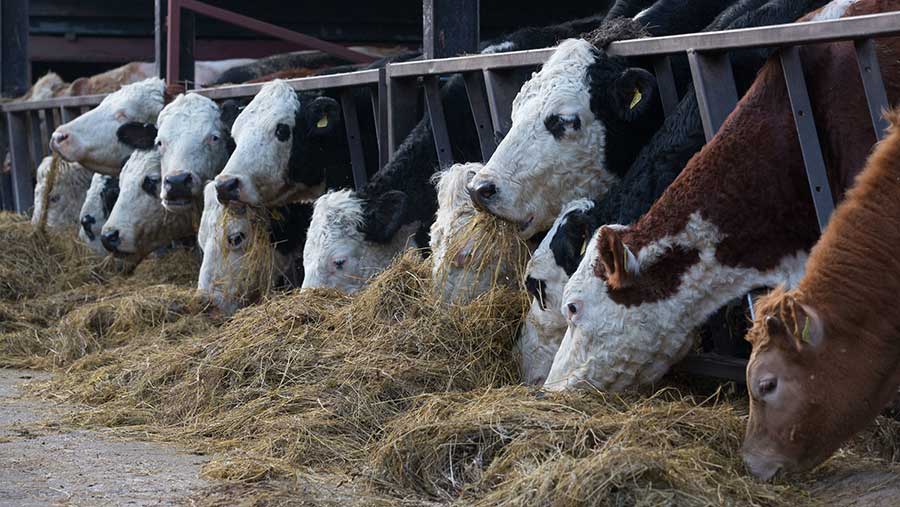What to do if feed is running low on your farm
 © Tim Scrivener
© Tim Scrivener Many farmers across the UK are desperately short of forage after silage making in the summer was hit by torrential rain.
This forced early housing of animals and prevented farmers from making adequate supplies of silage.
Below, Kite consultant David Keiley gives advice to farmers running low on forage.
We have also compiled a list of numbers of organisations that can help and spoke to Forage Aid to find out why they are not helping at this stage.
See also: 5 tips from dairy farmers for reducing costs
6 top tips when running low on forage
- Get silage analysed to ensure bought-in feed matches the forage to make the best ration possible.
- Look at cow performance and other issues such as lameness or high cell counts to cull out any passengers and reduce requirements.
- Assess the relative values of feeds rather than cost alone and consider all costs such as haulage. For example: sugar beet is high in energy but is light, so transporting it is cost effective.
- Consider hay-based diets for younger stock.
- Contact feed merchants to see if it is possible to buy forward and secure stocks at lower prices.
- Moister feeds such as Brewers’ Draff (Grains) are a good source of protein and supplies are strong. Drink firm Diageo announced it wanted to help Scotland’s farmers by increasing the availability of distillers’ by-products brewers’ draff and pot ale syrup.
New stocks will be available from 3 January 2018, following a recent review of co-product activities at Diageo’s distilling operations and will be supplied by KW Scotland.
Where to get help
Royal Scottish Agricultural Benevolent Institution (Financial support)
Confidential helpline: 0300 111 4166
Email: rsabi@rsabi.org.uk
Royal Agricultural Benevolent Institution (Financial support)
Confidential freephone helpline: 0808 281 9490
Email: grants@rabi.org.uk
Farm Community Network (Emotional support)
Helpline: 03000 111 999
Email: chris@fcn.org.uk
Why is Forage Aid not operating?
Forage Aid founder Andrew Ward said that the organisation had taken calls from farmers and was continuing to monitor the situation in Scotland.
But Mr Ward encouraged farmers to seek more immediate help from other farming charities at this stage.
“Forage Aid reacts when there is a sudden and catastrophic event such as flash flooding or heavy snow and co-ordinates feed or bedding donated by farmers,” he said.
“The chronic situation in Scotland began months ago and while it is a cause for great concern to all of us we are recommending farmers seek more appropriate help from charities such as the Royal Scottish Agricultural Benevolent Institution.
“The RSABI and other similar charities have the expertise to alleviate hardship quickly in this kind of situation, which is a set of circumstances we are not so familiar with.”
